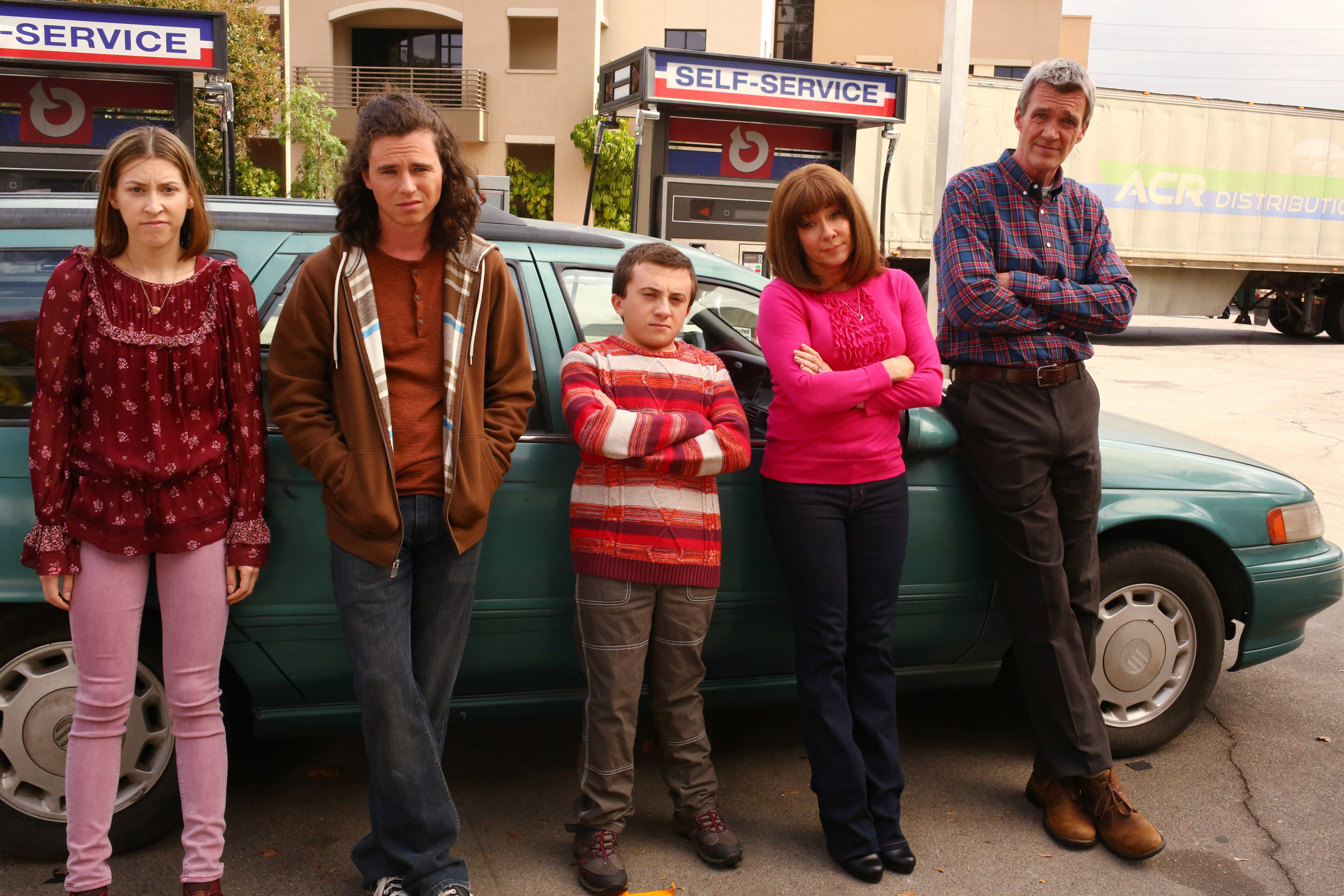Why The Middle is TV's most underrated comedy
For 200 episodes, the series has been consistently sharp, often laugh-out-loud funny — with something true to express about modern life. So why is it rarely counted among this TV era's elite?


A free daily email with the biggest news stories of the day – and the best features from TheWeek.com
You are now subscribed
Your newsletter sign-up was successful
Can a sitcom that's been on the air for nine years still be called "underrated?"
On Tuesday night, ABC will be airing the 200th episode of The Middle, a series that's been a solid player in the network's slate of family-centered comedies since it debuted in 2009. Never a smash hit, The Middle has nevertheless developed a loyal following, aided by streaming services and syndicated reruns. It's likable and largely apolitical — aside from its general affirmation of middle-class, middle-American decency — and is thus the sort of show that nearly anyone can enjoy, without giving too much thought as to why it's so good.
Perhaps because of that "not too much thought" part, The Middle has coasted through eight-and-a-half seasons without drawing a lot of attention. It's not a staple of modern TV criticism's weekly recap format. It doesn't generate that many social media impressions. It doesn't win Emmys or Golden Globes.
The Week
Escape your echo chamber. Get the facts behind the news, plus analysis from multiple perspectives.

Sign up for The Week's Free Newsletters
From our morning news briefing to a weekly Good News Newsletter, get the best of The Week delivered directly to your inbox.
From our morning news briefing to a weekly Good News Newsletter, get the best of The Week delivered directly to your inbox.
The show is in the midst of its final season, and so far at least, there's been a decided lack of ballyhoo about it, at least compared to the way the impending end of other long-running series have been covered in the past.
I don't think there's anything nefarious about the muted response to The Middle. It's not an overt or covert judgment on the content, in other words. As mentioned above, the show's not political, and critics don't seem to be avoiding writing about it for any reasons along those lines.
Although its star Patricia Heaton is an active conservative, dating back to her years working on the CBS hit Everybody Loves Raymond, her character Frankie Heck — as well as the people in Frankie's immediate circle of friends and family — are too busy trying to get through the workday, get dinner on the table, and get to all their kids' school functions to sit around having spirited debates about foreign policy or gay rights. For what it's worth, the show has featured gay characters, and the occasional left-leaning activist. All of them have been depicted the way everybody else on The Middle is: as flawed but fundamentally decent.
In fact, what's so quietly brilliant about this show is that while its humor can be broad — bordering on the cartoonish — the "situations" in this sitcom are among the most realistic and relatable of any on TV. The predicaments the Hecks find themselves in are partly due to a 21st-century American economy that has large segments of the middle class living paycheck to paycheck, and partly due to their own common foibles, like forgetfulness, exhaustion, and lack of communication.
A free daily email with the biggest news stories of the day – and the best features from TheWeek.com
Here's a case-in-point, from the season eight episode "A Tough Pill to Swallow." When upbeat, perpetually immature middle child Sue Heck forgets to renew her financial aid for college, the crisis isn't averted through any last-minute miracle. Her father Mike sells a side business that was just starting to pay off for him, and covers the tuition himself — in part because he feels some guilt over how sloppy he and Frankie have been about keeping up with their kids' lives, and in part because his two dominant character traits are his stoic reliability and how protective he is of his daughter.
Though The Middle isn't tightly serialized, it does maintain continuity. If a character loses a job, it stays lost. If something in the Heck house breaks, it can remain broken for years. The show follows enough of an episodic structure that viewers can drop in at any time and see a complete story in under 30 minutes. But the subplots and backdrops carry over from week to week, because in the real world people don't resolve every problem in a day or two.
Similarly, The Middle has accumulated an impressive number of running gags over its nine seasons, some of which are funny in a sitcom-y way and some of which just carry a spark of verisimilitude. In the former category is youngest child Brick Heck's obsession with libraries, and the way Sue keeps getting ignored at every school she attends. In the latter is oldest child Axl's slow-dawning realization that being a high school football stud doesn't guarantee success in life, and Frankie's habit of leaving her bras lying all over the house, and the whole family's tradition of "floating" special occasions like birthdays and anniversaries until they have the money and time to celebrate them properly (which sometimes never happens).
In short, The Middle has been a consistently sharp, often laugh-out-loud show — with something true to express about modern life — for nearly nine full years now. So why is it rarely counted among this TV era's elite?
Part of the blame goes to the era itself. There are too many good shows to watch now, and many of them carry a sense of importance that makes them a higher priority to see and to talk about. Even within ABC's line-up of family sitcoms, some flashier series have persistently overshadowed one of the network's best. The Middle debuted the same year as the more cutting-edge (in its way) Modern Family, which has gone on to be an Emmy perennial. In the years since, it's shared airtime with the likes of Fresh Off the Boat, Speechless, The Real O'Neals, and Black-ish, all of which have come across as more "relevant," for one reason or another.
(True confession: Just last week I filed a ballot with my votes for the 10 best TV shows of 2017, and I put Black-ish on there but not The Middle. So I'm part of the problem.)
Ultimately, I'd probably chalk up The Middle's no-big-deal exit from television to the very thing that makes it so great: Steadiness. Even as it wraps up its last season, I think there's a general feeling that The Middle will always be around. It's going to be a perennial in syndication and streaming, because there's nothing trendy about it. It would've been funny in the 1980s. It'll still be funny in the 2030s. Those who haven't caught up with it yet have plenty of time.
The Middle is the Mike Heck of sitcoms. It's seemingly simple, clearly capable, and not clamoring for approval — but those who take the time to get to know it are surprised by its depth of feeling.
Noel Murray is a freelance writer, living in Arkansas with his wife and two kids. He was one of the co-founders of the late, lamented movie/culture website The Dissolve, and his articles about film, TV, music, and comics currently appear regularly in The A.V. Club, Rolling Stone, Vulture, The Los Angeles Times, and The New York Times.
